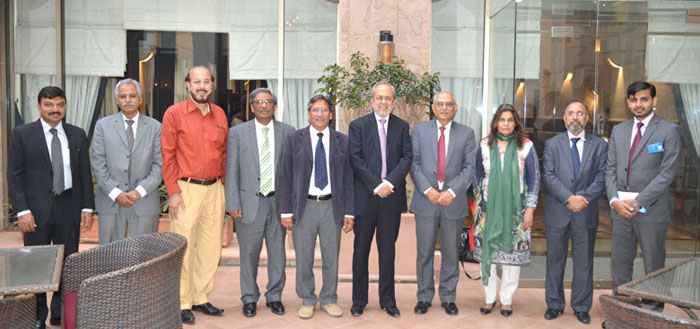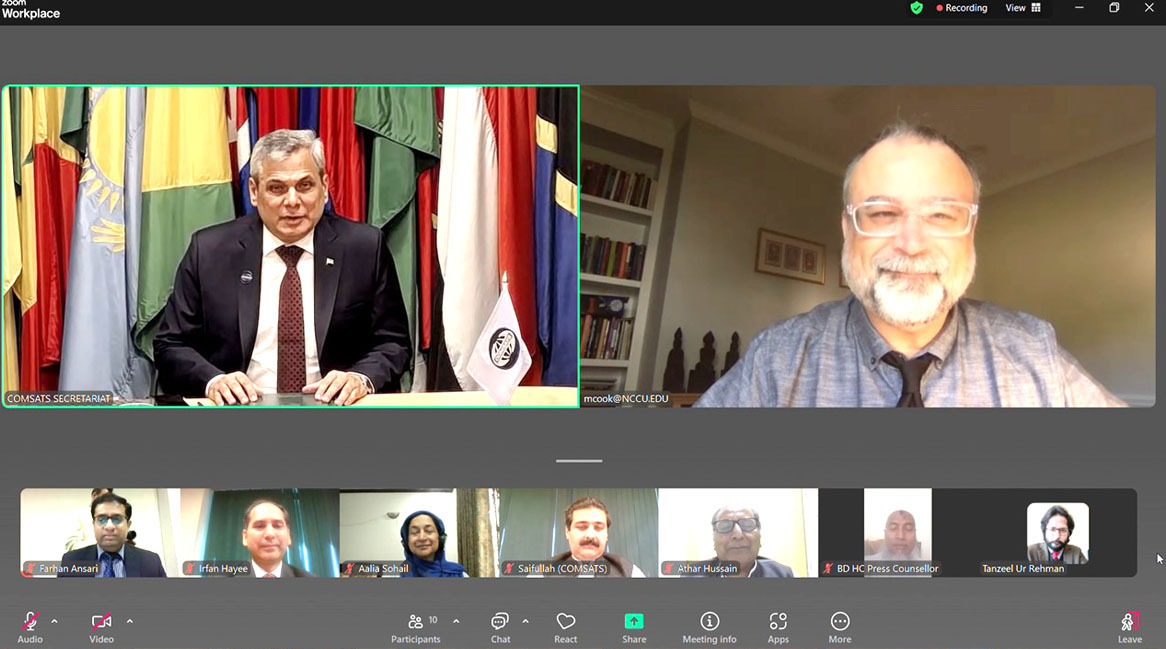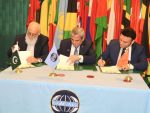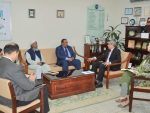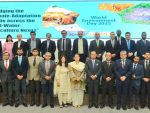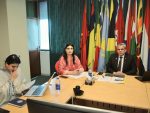The Executive Director COMSATS, Dr. S. M. Junaid Zaidi, hosted hi-tea for senior scientist and experts from different institutions related to science and technology on 29th March 2017. The purpose of the informal sitting was to brief the experts regarding different on-going activities of the COMSATS and to invite their inputs with a view to further improve the future course of action for COMSATS’ projects and programmes.
The hi-tea had a participation of some renowned scientists of Pakistan, including Dr. Yousaf Zafar, Chairman Pakistan Agriculture Research Council (PARC), Prof. Dr. Anwar-ul-Hassan Gilani, Chairman Pakistan Council for Science and Technology (PCST), Dr. Muhammad Ashraf, Chairman Pakistan Council of Research in Water Resources (PCRWR), Dr. Zabta Khan Shinwari, President Pakistan Academy of Sciences and Dr. Aslam Baig, Distinguished Scientist from National Centre for Physics. Mr. Tajammal Hussain, Advisor Programmes, Mr. Bilal Chuohan, Director Administration and Establishment, Mr. Nisar Ahmad, Deputy Director (Systems), and Mr. Akif Sattar, Coordination Officer, from COMSATS Secretariat were also present on the occasion.
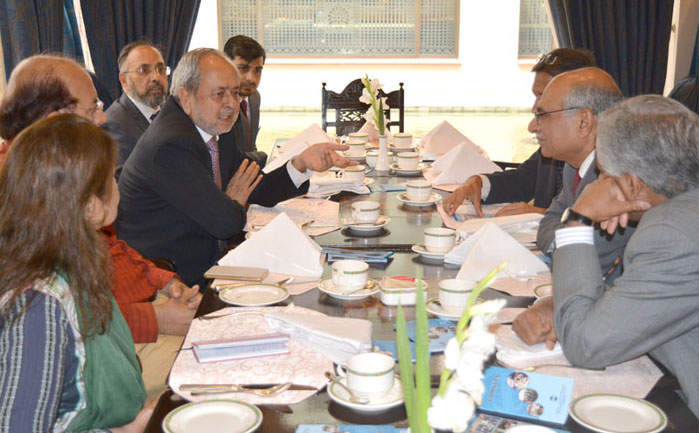 |
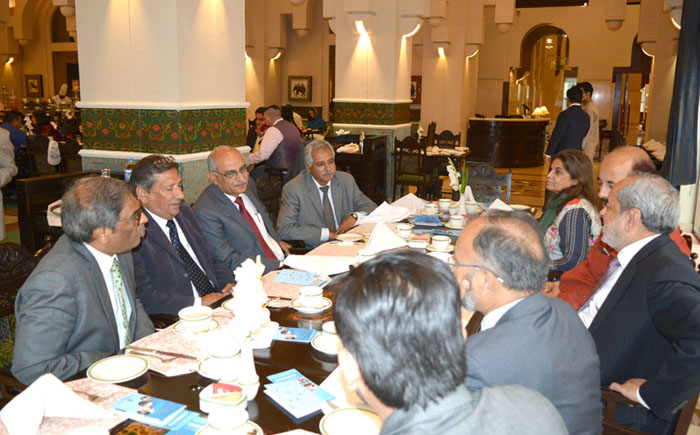 |
The Executive Director informed the participating scientists that he is looking for new ideas as to how the future projects of COMSATS would be shaped with a view to enhance COMSATS’ efforts for development of Member States in the field of science and technology. The practical and innovative ideas gathered could lead to sound proposals for funding from relevant government institutions and donor organizations in Member States. He emphasized on having stronger linkages and more effective liaison with COMSATS international Centres of Excellence of COMSATS for promotion of collaborative research and innovation.
All the participants agreed to the idea of enhancement of COMSATS’ activities and its role in S&T-led development of the South. Among the ideas discussed was having international projects like SESAME (Synchrotron-light for Experimental Science and Applications in the Middle East) to be emulated in Pakistan to facilitate the scientists of Member States. Similarly, it was suggested that COMSATS, in collaboration with international organizations like UNESCO, can help develop international R&D collaborations on the lines of CERN (European Organization for Nuclear Research).
Focus areas for future activities of COMSATS agreed on by the senior participants included, Health, Food Security, Water Resource Management, Climate Change and Nanotechnology. It was also suggested that COMSATS can also help develop an advanced center of Nanotechnology for multi-disciplinary research in the field in one of the Member States.
At the end of the meeting, the Executive Director showed his desire to hold individual meetings to follow-up on the discussions of the present meeting in order to further discuss the feasibility of the ideas shared to, in turn, materialize as COMSATS’ flagship projects. Dr. Zaidi thanked the participants for such a healthy brainstorming session and hoped that the innovative ideas shared during the meeting would soon materialize to benefit COMSATS’ Member Countries.


